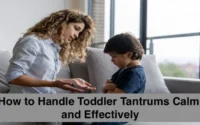Why Parents Should Avoid Monitoring Kids’ Social Media
In today’s digital age, social media plays a significant role in shaping the lives of teens. As parents, it’s natural to want to ensure their safety, but constantly monitoring their online activities might not be the best approach. Instead of fostering trust and growth, excessive surveillance can lead to resentment, secrecy, and missed opportunities for meaningful connection. This article explores why parents should avoid monitoring kids’ social media and provides better strategies to build trust and guide them responsibly.
For tips on improving communication with your teen, check out Building Strong Parent-Teen Relationships.
1. Monitoring Undermines Trust
Trust is the foundation of any healthy relationship, and that includes the bond between parents and teens. When parents monitor their kids’ social media without consent, it can make teens feel like their privacy is being invaded. This lack of trust can push them to hide things or lie, damaging open communication.
Rather than monitoring, have honest discussions about the online world. Let your teen know you trust them, and they’ll be more inclined to share their digital experiences with you.
2. Stifling Independence and Growth
Teens need space to make decisions and learn from their mistakes. By closely monitoring social media, parents risk stifling their child’s independence. It’s crucial for teens to navigate challenges, like handling peer pressure or identifying fake news, on their own.
Instead, focus on equipping your child with the tools to make smart decisions online. Discuss digital literacy and teach them how to recognize harmful content or behavior.
For more on helping teens develop responsibility, read our guide on Encouraging Independence in Teens.
3. Privacy Breaches Cause Resentment
Just as adults value their personal space, teens also deserve privacy. Social media often serves as a creative outlet or a way to connect with friends. Excessive monitoring can make them feel their personal space is being invaded, leading to frustration or even rebellion.
Respecting your teen’s privacy fosters a stronger bond. Instead of spying, set boundaries together and encourage open dialogue about their online experiences.
4. Misinterpretations Lead to Unnecessary Conflict
Social media communication can be cryptic, full of slang and inside jokes that parents may not understand. Misreading a post or comment can spark unnecessary arguments, creating tension between you and your teen.
To avoid this, try to approach any concerns with curiosity instead of accusations. Ask your teen about what you don’t understand and allow them to explain their perspective.
5. Monitoring Encourages Secret Accounts
When teens feel overly monitored, they often find ways to escape surveillance by creating secret accounts or using platforms parents aren’t familiar with. This defeats the purpose of monitoring and can lead to hidden behaviors.
Building trust and encouraging openness are far more effective. Let your teen know that you’re there to support them, not control them, and they’ll be less likely to hide things.
6. Shifting from Guidance to Policing
As a parent, your role is to guide your child, not to police their every move. Excessive monitoring shifts the focus from mentorship to control, which can damage the parent-child relationship. Teens are more likely to thrive when they feel supported and understood.
Instead of policing, use social media as a way to bond. Share funny memes, discuss trending topics, or even explore platforms together. This builds a connection without making them feel scrutinized. While the digital world presents its challenges, the reasons why parents should avoid monitoring kids’ social media are compelling. By focusing on trust, communication, and education, you can guide your teen toward safe and responsible online behavior.


